Dennis Wheatley was an English writer whose prolific output of thrillers and occult novels made him one of the world’s best-selling authors from the 1930s through the 1960s. His Gregory Sallust series was one of the main inspirations for Ian Fleming’s James Bond stories but he is probably associated first and foremost with the Black Magic series of novels, among them The Devil Rides Out. Wheatley mainly wrote adventure novels, with many books in a series of linked works. Background themes included the French Revolution (the Roger Brook series), Satanism (the Duke de Richleau series), World War II (the Gregory Sallust series) and espionage (the Julian Day novels). Over time, each of his major series would include at least one book pitting the hero against some manifestation of the supernatural – making them into Fantasy and specifically Contemporary Fantasy. He came to be considered an authority on Satanism, the practice of exorcism, and black magic, toward all of which he expressed hostility. During his study of the paranormal, though, he joined the Ghost Club. Wheatley himself once said: “Should any of my readers incline to a serious study of the subject, and thus come into contact with a man or a woman of Power, I feel that it is only right to urge them, most strongly, to refrain from being drawn into the practise of the Secret Art in any way. My own observations have led me to an absolute conviction that to do so would bring them into dangers of a very real and concrete nature.”
Dennis Yates Wheatley was born in London, the son of a wine merchant. At the age of 8 he was sent to a prep school on the South Coast (where his gift for storytelling first emerged, when he entertained the boys with stories after ‘lights out’) and then to Dulwich College (1909-1910), from which he was expelled for allegedly forming a “secret society” (as he mentions in his introduction to The Devil Rides Out). He was then sent to the physically hard Royal Naval training ship HMS Worcester to complete his education. After this the intention was that he would spend time in each of the major wine making countries to learn the business, but he only managed six months with a wine merchant in Traben-Trarbach in Germany before World War I intervened. In 1926 his father died, leaving him as the sole owner of the family wine business. In the early thirties he had to sell the business and became nearly bankrupt. His first published novel The Forbidden Territory was an immediate success. It was translated in many languages and the film rights were bought by Alfred Hitchcock. After finishing The Fabulous Valley, Wheatley decided to use the theme of black magic for his next book. The release the next year of his occult story, The Devil Rides Out—hailed by James Hilton as “the best thing of its kind since Dracula”—cemented his reputation as ‘The Prince of Thriller Writers.’ His prolific output of stylish thrillers and occult novels made him one of the world’s best-selling authors in the 1950s and 1960s.
There is something of the fantasist in every storyteller but Wheatley was one of the handful who was actually involved in real-life daring-do, as he saw action during both World Wars. He was commissioned as a 2nd Lieutenant into the Royal Field Artillery during the First World War, receiving his basic training at Biscot Camp in Luton. Wheatley was gassed in a chlorine attack during Passchendaele and was invalided out, having served in Flanders, on the Ypres Salient, and in France at Cambrai and St. Quentin. During the Second World War Wheatley was a member of the London Controlling Section, which secretly coordinated strategic military deception and cover plans. His literary talents led to his working with planning staffs for the War Office. He wrote numerous papers for them, including suggestions for dealing with a possible Nazi invasion of Britain (recounted in his works Stranger than Fiction and The Deception Planners). The most famous of his submissions to the Joint Planning Staff of the war cabinet was on “Total War”. He received a direct commission in the JP Service as a Wing Commander, RAFVR, and took part in the plans for the Normandy invasions. After the war Wheatley was awarded the U.S. Bronze Star for his role in the war effort.
After the War, Wheatley bought a mini-country mansion in seaside Lymington in Hampshire, and he continued to write books, introducing a third principal character, Roger Brook, whose exploits took place in the Napoleonic era so he would not be tempted to reveal contemporary secrets by mistake. He worked hard and to a well-disciplined routine. For around eight months of the year Wheatley would devote himself to his writings. He would rise mid-morning and sometimes go to bed well after midnight, depending on how his writing was going. He took the remaining months off to go travelling, partly for pleasure and partly to research his next books. In the days when international travel was a distinct privilege, Wheatley went round the world twice, and used countries as diverse as Sri Lanka, Mexico and Egypt as backdrops for his books. During this time several of his books were filmed by Hammer, the most famous being The Devil Rides Out with his friend Sir Christopher Lee playing the role of the Duke, a role which he enjoyed enormously. Wheatley was a born collector and collected many things; but he is particularly famous for his library, which contained an impressive array of signed first editions of twentieth century fiction as well as many hundreds of books (some very rare) that he used in his research. A stream of his friends – including a host of wartime ‘top brass’ – came down for stays with him in Lymington or kept up a long-term correspondence, and he was renowned for answering fan mail, almost always giving his correspondents helpful and personal replies. As Wheatley got older, understandably he became less active. He moved back to London full-time in 1968, and started writing his autobiography. There were five volumes but these were abridged into four after his death, with only the first volume being published while he was alive. Dennis Wheatley died on 10th November 1977, aged 80, and his ashes were buried in Brookwood cemetery.

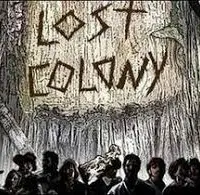

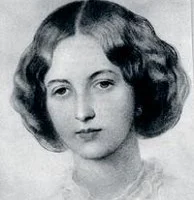
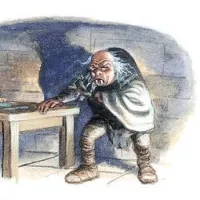


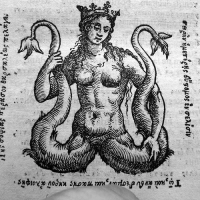



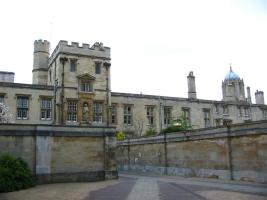


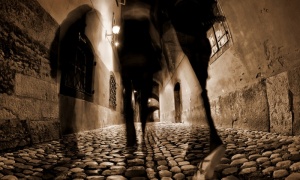


Again, consistently intriguing! I have assigned your posts as compulsory summer reading to my daughter and four nephews. Your skillful blend of circumstance, author bio, suggested further reading, is the perfect blend of brevity, literature, culture, folklore, myth, history all delivered in the irresistible wrapping of the supernatural. The boys and girl will love it all (are already loving it). Thanks from New York, and Reagill (Cumbria). Best, Hugh Paxton
Thanks for your support and lovely comments as always!